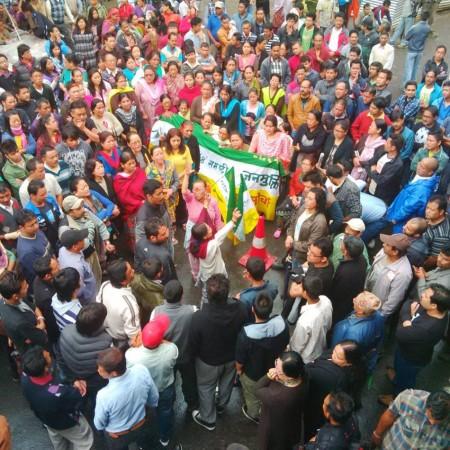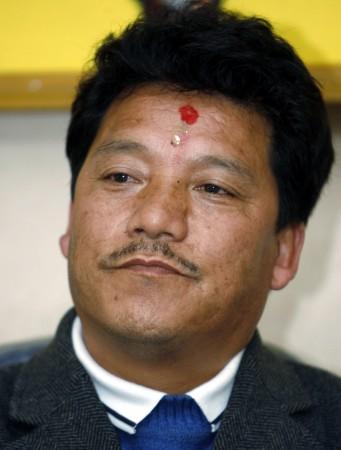
Darjeeling is back to its days of horror. The sensitive Hill region in northern West Bengal which is close to several international borders continues to burn as two sub-nationalisms – Gorkha and Bengali – clash over the question of Gorkhaland statehood. The crisis is showing no signs of subsidence since neither Chief Minister Mamata Banerjee nor Gorkha Janmukti Morcha (GJM) supremo Bimal Gurung is ready to soften their respective stand.
However, besides the more obvious reason, the current Gorkhaland crisis has another crucial dimension to it and that is the gradual rise of the BJP in the state.
BJP has become a part of the problem even if had not liked it
Even as the Gorkhas have always asserted their distinctiveness in areas under their cultural and political influence, refusing to abide by what Kolkata dictates over the years, the problem has been exacerbated by the clash of Banerjee with the saffron ideology and even though the BJP is doing its best to stay away from the Darjeeling pandemonium, it has not really succeeded in completely alienating itself. That Darjeeling has a BJP MP has forced the party into the problem even more.
Ever since her coming to power in 2011, Banerjee has resorted to the idea of asserting Bengali sub-nationalism, something which her more secular predecessors had refrained from. She even turned her state's poor economy into a tool to promote the Bengali sub-nationalism, by making remarks like "we will help ourselves financially and not beg from the Centre".
Mamata Banerjee's assertive Bengali sub-nationalism
After the BJP's coming to power at the Centre and its gradual rise across the nation in and after 2014, Banerjee pushed the accelerator more to counter the influence of Hindi. She made Bengali compulsory in the schools of the states and also mobilised her cabinet to the Hills, trying to assert her power in the Hills. This, in turn, enraged the Gorkha identity and made the conflict unavoidable. The fault lines of the confronting sub-nationalisms were split open and it has to be seen who can bridge the gap now.
It is an irony that Gurung's onslaught could lead to what seemed unthinkable a few days ago: a Mamata-Modi rapprochement. Given the sensitivity of the Darjeeling region in North Bengal, it will only lead to a bigger disaster if the Centre ignores the snowballing crisis more and only blame the state government for the mess. It's high time to drop the political blame game and join hands to calm down hurt feelings.

The BJP has a high risk in Gorkhaland crisis
The BJP cannot expect to use the situation to corner Banerjee for if it backs the Gorkhaland issue, not only its own ambitions in Bengal will be jeopardised but it will also open a Pandora's Box for Prime Minister Narendra Modi across the country.
The GJM also needs to understand that emotions alone cannot feed their politics for long. It is almost impossible for the Indian state to recognise a new vulnerable state on the fringes, especially from where China is not far.
The GJM leadership needs to learn the nuances of a swift administrative operation by working closely with Kolkata and New Delhi and not expect to make gains from the personality clashes between Banerjee and Modi.
The accusations of corruption against the GJM-dominated Gorkhaland Territorial Administration has also dented his image in the Hills and also put the electoral friend BJP at a distance. The TMC has also made inroads into the Hills, as we saw in the recent civic elections. The GJM leader, who had once risen on the ruins of late Subash Ghishing, only has the Gorkha emotions to capitalise on. But how long can that survive in the face of a strong State?








